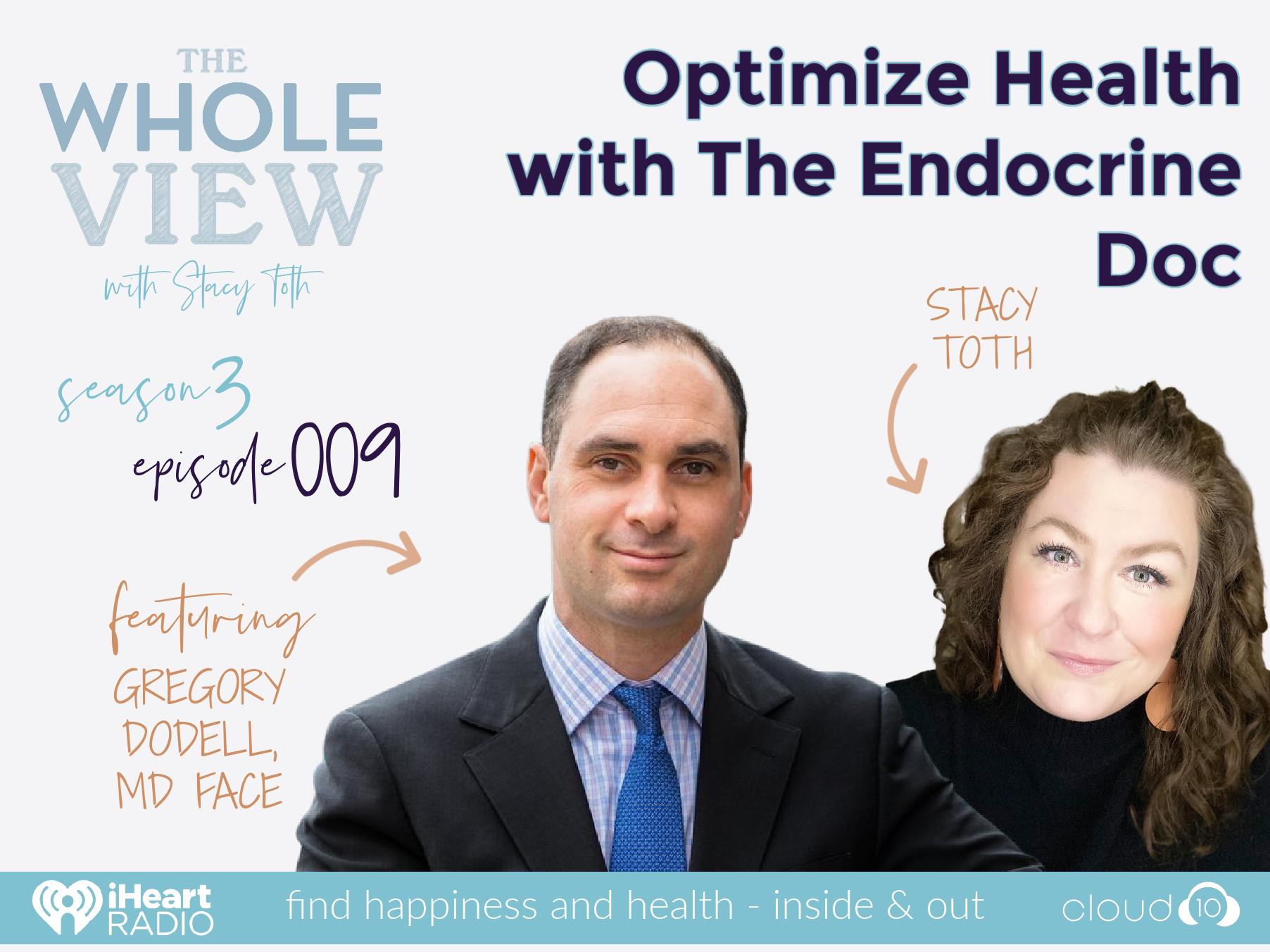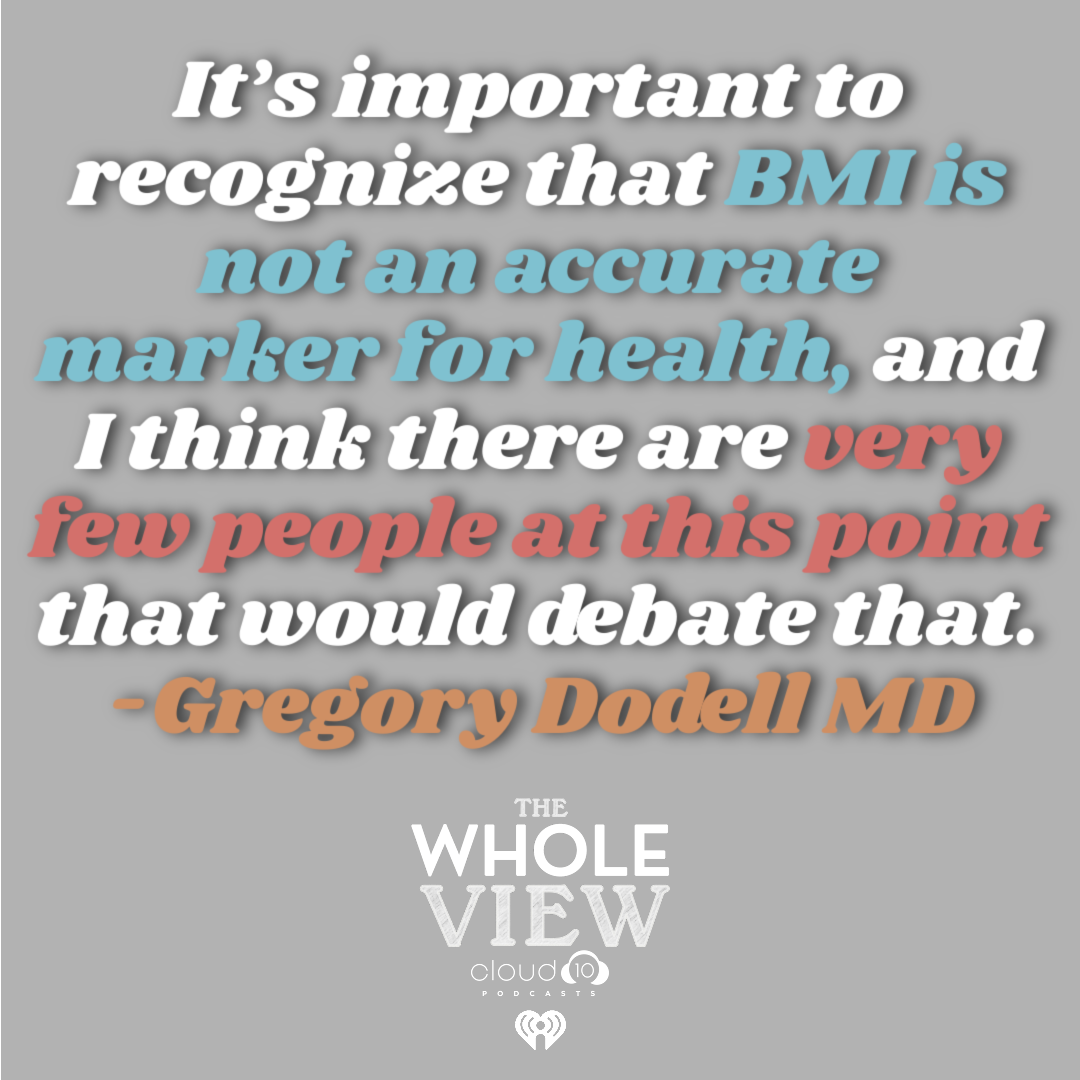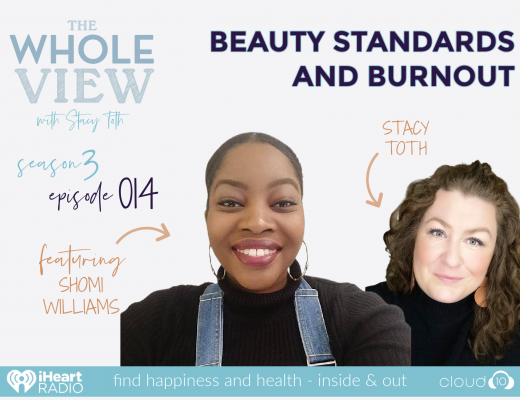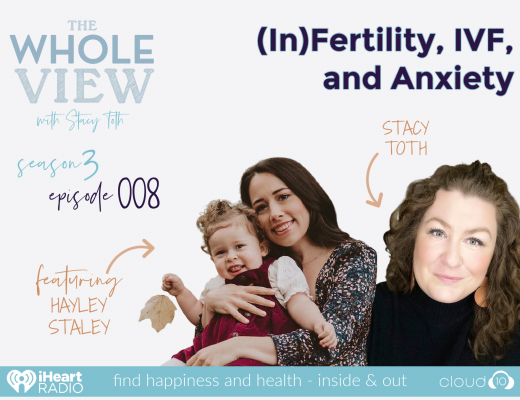Welcome Dr. Gregory Dodell to the Whole View! This week, Stacy and Dr. Gregory discuss how to optimize health, issues within the healthcare industry, and why BMI is not a good measurement of health. In addition, Dr. Gregory gives tips on dealing with doctors who are hyper-focused on weight and things you can do to fight weight stigma!

Find Dr. Dodell:
- website: www.centralparkendocrinology.com
- IG: everything_endocrine
- Twitter: dodellmd
If you enjoy the show, please leave a review. Letting people know on iTunes or however you listen that it’s worth their time could change someone’s life!

Key Takeaways
Introductions
- Dr. Gregory B. Dodell is an endocrinologist in New York, New York, affiliated with multiple hospitals, including Mount Sinai Hospital, Mount Sinai Morningside, and Mount Sinai West Hospitals.
- Dr. Gregory has always wanted to be a doctor. He became specifically interested in the Endocrine System in college due to the sheer effect hormones have on every system in the body. Dr. Gregory received his medical degree from Albany Medical College and has been in practice for nearly 20 years!
- He has a huge social media presence and combats weight stigma. Stacy originally found his account through his wife, Alexis Conason (@theantidietplan), an NYC Psychologist and author of the book, The Diet Free Revolution.
- Stacy is constantly asked for recommendations of fat-friendly, size-inclusive medical professionals, so she KNOWS how rare it is to find the level of education and sharing Dr. Gregory has. She can’t thank him enough for putting himself out there so openly! She knows it will help not just you listeners who are patients but also the many, MANY health practitioners, nutritionists, and fitness experts that we have as listeners.
Optimize Health
- If you’re in a system that doesn’t give you the time to see the patient, the patient can’t get access to the treatments you think is best for them, or spending your time with bureaucracy. The system is partly responsible for what we see in healthcare, if not primarily responsible.
- It’s essential to recognize that BMI is not an accurate marker for health, and there are very few people at this point that would debate that. People across the size spectrum have issues like diabetes and heart disease (often attributed to obesity) with no link to BMI.
-
You can say, “I know I’m in a larger body, but I prefer to focus on behaviors, movement, what I’m doing for sleep, nutrition, and things like that. But I do not want to focus on weight. “If you don’t want to know your weight, you can refuse weighing. If it’s medically necessary, you can request the doctor not tell you the number. The more people who start doing that in medical offices, it’s going to change the culture.
- Battling weight stigma is underweight and will only get better over time. The biggest issue is arguing over the best way to combat it: do you use person-first language or take it out of the equation and only talk about behaviors? Clinicians need to ask themselves if knowing this person’s weight will change the management of their health whatsoever. And is focusing on it causing more harm than good?
Topics discussed:
- A 2014 study showed that the experience of weight stigma, as assessed by questionnaires, significantly increased morning salivary cortisol, the cortisol awakening response, and serum cortisol measured from fasting morning blood samples.
- A 2017 analysis paints a disconcerting picture that when overweight and obese people go to the doctor, they’re likely to have their symptoms attributed to their weight without diagnostics performed. Instead, they are counseled (with more than a sprinkling of fat-shaming micro-aggressions) to lose weight.
- This 2006 study of more than 300 autopsy reports found a 1.65X increased likelihood of obese patients, relative to normal-weight patients, having a significant undiagnosed medical condition. These conditions include endocarditis, ischemic bowel, and lung carcinoma. It’s not that obesity increased the risk of these medical conditions, but rather that it increased the risk of dying from them due to inadequate healthcare.
- A 2008 study showed that overweight and obesity were not synonymous with being metabolically unhealthy. Among overweight individuals, 51.3% were metabolically healthy; among obese individuals, 31.7% were metabolically healthy. And, among normal-weight individuals, 23.5% were metabolically abnormal.
Want More? Have Questions?
Want more? Come join the Patreon community! You can support The Whole View podcast and hear what Stacy and her guests really think about the topic in this week’s exclusive and uncensored behind-the-scenes bonus audio. We love connecting with our Patrons! It’s a direct line to submit your questions for upcoming shows. You also get access to some additional cool features like Q&As, voting on show topics and guests, and a quarterly exclusive commercial-free episode.
Products & Sponsors
- betterhelp.com/wholeview
- 10% off their first month
- Indeed.com/wholeview
- $75 credit
Sources
Want more info on our Real Life? Healthy recipes, parenting tips, and general lifestyle stuff goes out in our Real Everything newsletter, join here.
Never want to miss a post, sale, or deal? Join my Healthy Inside & Out e-mail list for more info on non-toxic living and safer skincare!
Note: Stacy and her guests are not medical professionals. This podcast is for general educational purposes and NOT intended to diagnose, advise, or treat any physical or mental illness. We always recommend you consult a licensed service provider.




